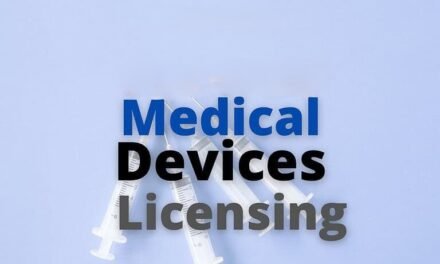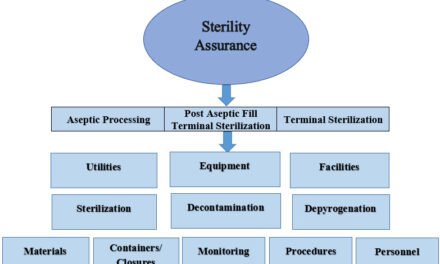
How does Tamil Nadu collaborate with the central government to boost this Medical Device industry?

Tamil Nadu collaborates closely with the central government to strengthen its medical device industry by aligning state policies with national initiatives, leveraging central schemes, and co-developing infrastructure and incentives. Here’s how this collaboration works:
1. Alignment with Central Government Schemes:
- Production Linked Incentive (PLI) Scheme:
- Tamil Nadu actively supports the PLI Scheme, which offers financial incentives for manufacturing high-tech medical devices.
- The state identifies and promotes eligible manufacturers to leverage this central scheme.
- Medical Devices Parks Scheme:
- Tamil Nadu’s Medical Devices Park in Oragadam aligns with the central government’s initiative to develop medical device manufacturing clusters with shared infrastructure.
- Central funding complements state efforts, reducing costs for manufacturers.
2. Infrastructure Development:
- Central and State Collaboration:
- Tamil Nadu’s industrial corridors, such as the Chennai-Bengaluru Industrial Corridor, are co-developed with central funding to enhance logistics and supply chain networks.
- Medical Device Testing and Certification Facilities:
- Joint investments from the state and central governments establish world-class facilities for testing, calibration, and certification, enabling local products to meet international standards.
3. Skill Development and Workforce Training:
- Skill India and State Initiatives:
- Tamil Nadu integrates central programs like Skill India with local initiatives to train a specialized workforce for medical device manufacturing.
- Collaboration with Institutes:
- Partnerships with central institutions like IIT Madras and NIPER (National Institute of Pharmaceutical Education and Research) drive innovation and skill development in medical technology.
4. Financial Incentives and Subsidies:
- Combined Financial Support:
- The state complements central subsidies (like PLI incentives) with additional tax exemptions, capital subsidies, and low-interest loans.
- Central Tax Benefits:
- Tamil Nadu ensures that manufacturers can benefit from central tax incentives, such as customs duty exemptions on imported components for medical devices.
5. Regulatory Facilitation:
- Streamlined Approvals:
- Tamil Nadu collaborates with central regulatory bodies like the Central Drugs Standard Control Organization (CDSCO) to expedite approvals for new products.
- Ease of Doing Business:
- The state leverages central government initiatives like Digital India to simplify processes such as product registration and compliance through digital platforms.
6. Promoting Exports:
- Integration with National Export Policies:
- Tamil Nadu aligns its export promotion strategies with the central government’s initiatives to boost medical device exports.
- Export Infrastructure:
- The state utilizes central schemes like the Trade Infrastructure for Export Scheme (TIES) to develop export-oriented infrastructure, such as ports and logistics hubs.
7. Encouraging Foreign Direct Investment (FDI):
- 100% FDI in Medical Devices:
- Tamil Nadu works with the central government to attract foreign investments by promoting 100% automatic FDI approval in medical device manufacturing.
- Joint Investor Outreach:
- Collaborative efforts between Invest India (central initiative) and Guidance Tamil Nadu bring international investors into the state’s medical devices sector.
8. R&D and Innovation Support:
- Technology Transfer:
- The state encourages technology transfer by leveraging central R&D funding programs and partnerships with institutions like the Department of Biotechnology (DBT).
- Incubators and Startups:
- Tamil Nadu’s startup incubators work in tandem with central initiatives like Startup India and BIRAC (Biotechnology Industry Research Assistance Council) to support med-tech innovation.
9. Addressing Pandemic Challenges:
- COVID-19 Response:
- Tamil Nadu collaborated with the central government during the pandemic to ramp up production of ventilators, oxygen concentrators, and PPE kits.
- The state leveraged central procurement schemes for rapid scaling.
10. Advocacy and Policy Input:
- Joint Policy Development:
- Tamil Nadu contributes to national policy-making for the medical devices sector by sharing insights and recommendations from local stakeholders.
- Representation in Central Committees:
- State representatives participate in central committees focused on healthcare and medical device strategies.
Key Achievements from Collaboration:
- Establishment of Oragadam Medical Devices Park:
- Co-funded by the state and central government, this park provides world-class facilities for manufacturers.
- Increased Investments:
- Joint promotion of Tamil Nadu through national and international events has attracted global players like Omron Corporation.
- Boosted Exports:
- Tamil Nadu leverages central export incentives to expand its reach in international markets.
Tamil Nadu’s collaboration with the central government is pivotal to its success in the medical devices industry. By aligning policies, co-developing infrastructure, and leveraging central schemes, Tamil Nadu is building a robust ecosystem that supports innovation, manufacturing, and exports in the medical technology space. This partnership strengthens the state’s position as a leading destination for medical device manufacturing in India.




























